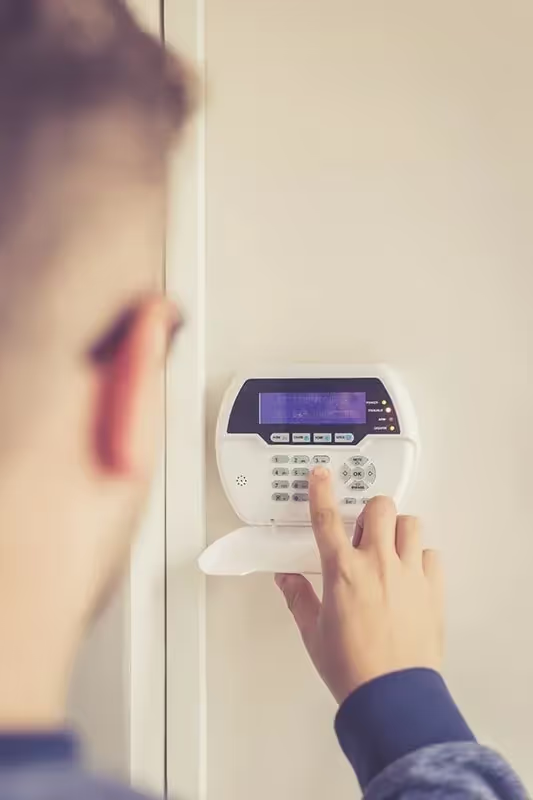Ensuring the safety of our homes is a top priority for many of us, yet even the most sophisticated home security systems can encounter failures. These hiccups can range from minor inconveniences to major lapses in protection, leaving our homes and loved ones vulnerable. Understanding what can go wrong is the first step towards making our security systems more resilient. In this blog, we explore the top six reasons why home security systems might fail and explain how the expertise of professionals can enhance the security of your home.
1. Inadequate Installation and Maintenance
According to industry research, a staggering 30% of home security system failures can be traced back to improper security system installation and insufficient maintenance. Systems that are not installed correctly can lead to false alarms or, worse, fail to alert homeowners during an actual breach.
Regular maintenance is also essential to ensure that all components of the system function optimally. Components like cameras, sensors and alarm systems require periodic checks to ensure they are working, correctly calibrated and free from physical obstructions.
2. Outdated Technology and System Incompatibility
Clutching onto outdated technology is like locking your doors but leaving the windows wide open. The digital age moves fast, and security system technology is no exception. Here are key upgrades that can enhance your home's security:
- Integration of Smart Home Devices: Ensures seamless operation between your home security system and other smart home technologies.
- Advanced Motion Detectors: Reduce false alarms by distinguishing between potential threats and minor disturbances.
- Remote Monitoring Capabilities: Allow you to monitor your property from anywhere in the world.
Upgrading your system not only enhances security but can also help avoid common faults that stem from outdated or incompatible equipment.
3. User Misconfiguration and Misuse
A surprising 95% of alarm activations are due to user error, including incorrect configuration or operation of systems, as found in studies by police departments. This statistic shows the critical need for comprehensive user education and support. Avoiding these missteps requires:
- Reading the Manual: Familiarise yourself with your system’s features and limitations.
- Regular Training Updates: Stay informed on new features and operational procedures.
- Professional Setup: Ensure that the initial configuration is done by experts, laying a solid foundation for secure operations.
If your system is constantly emitting warning sounds, this could be an indication of a misconfiguration or a technical fault. Learn how to address these issues in our guide: How to Stop Your Security System from Continuously Beeping
4. Environmental Factors and Physical Damage
Environmental factors account for a significant portion of home security system failures. According to industry analyses, extreme weather conditions like heavy rain or high winds can result in 20% of outdoor security cameras failing. Addressing these issues involves two main approaches:
- Choosing Durable Equipment: Designed to withstand harsh weather conditions and resist physical damage.
- Strategic Placement: Minimises exposure to environmental risks and potential vandalism.
Through thoughtful security system installation and robust equipment, environmental threats can be effectively mitigated.
5. Smart Home Technologies and Cybersecurity Risks
Cybersecurity has become a critical concern with the rise of smart home technologies. It is just as important as physical security to prevent home security system malfunctions. Some best practices include:
- Regular Software Updates: Patch vulnerabilities before they can be exploited.
- Strong Password Policies: Use complex passwords and change them regularly.
- Secure Wi-Fi Networks: Ensure your home network is as fortified as your front door.
Hackers can target weaknesses in your security cameras and other connected devices. Protect your system from these digital threats with our latest blog: How to Keep Your Security Cameras Safe from Hackers
6. Network Vulnerabilities and Connectivity Issues
Modern home security systems often rely heavily on internet connectivity. A drop in network performance or weak Wi-Fi coverage can interrupt communication between your system’s components, leading to detection failures or delays in alerts. To combat this:
- Invest in Quality Routers and Range Extenders
- Regularly Monitor Network Health
- Segment Your Network for Security Devices
Ensuring your network infrastructure supports your security system installation is vital for reliable performance.
Partner with the Professionals
At Advanced Security Group, we understand that protecting your home requires more than just cutting-edge equipment—it calls for expert advice, meticulous security system installation, and ongoing support. Whether you’re upgrading an old system or installing a new one, we’re here to guide you every step of the way.
Contact us today to schedule a consultation or speak to one of our security specialists. Invest in peace of mind with a tailored solution that keeps your home safe and secure.
Want to Learn More?
If you found this article helpful, be sure to check out our in-depth guides for further troubleshooting and tips:
- How to Stop Your Security System from Continuously Beeping – Learn to troubleshoot common causes of annoying system alerts.
- How to Keep Your Security Cameras Safe from Hackers – Discover practical ways to shield your system from cyber intrusions.




